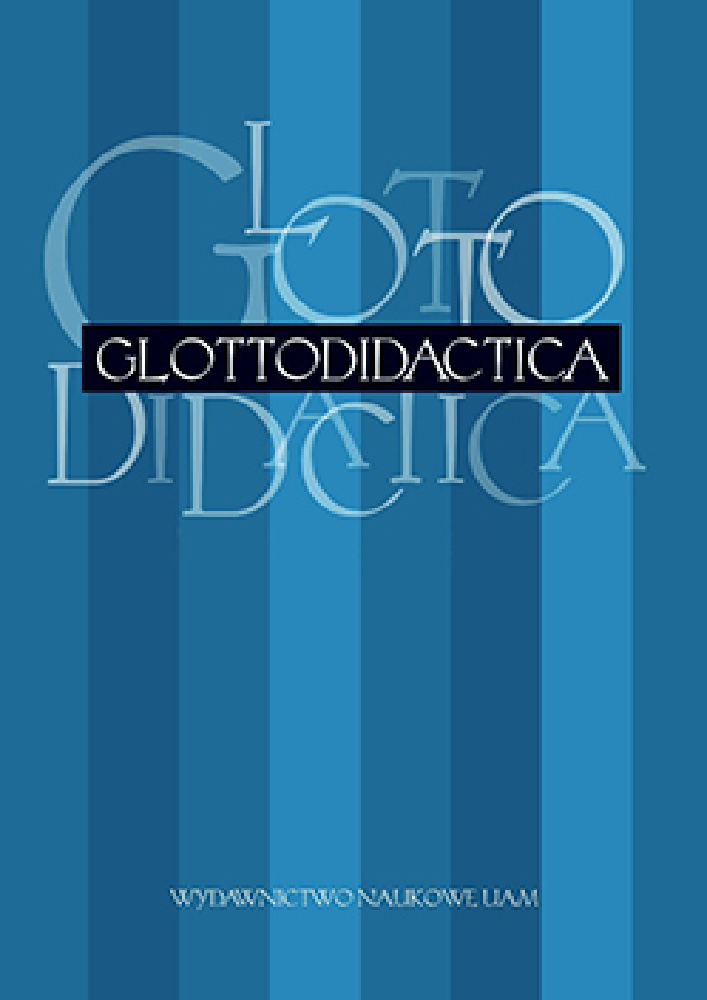Résumé
Intercultural (foreign language) teacher training tends to concentrate on selective case studies developed to show communicative problems, caused by their very special intercultural and multilingual characteristics. It also tends to make a big promise of a rapid improvement in intercultural communication in a multicultural and multilingual society by transferring the solutions for intercultural communicative problems to the students’ own experience. Such an approach fails to take into account the fact that encounters with inadequate communicative acts (behaviours/speech acts) determined by cultural and/or language differences are a daily experience of everybody and require a lot of communicative effort in order to prevent intercultural problems before they happen. The following article discusses what is meant by communicative effort, how past studies on the intercultural competence of (foreign language) teachers account on communicative effort, and how to prepare students to undertake communicative effort in their daily communicative activities in a multicultural and multilingual society.
Références
Agar, M. H. (1994). Language shock: Understanding the culture of conversation. New York: William Morrow.
Bailey, K. M. (1983). Competitiveness and anxiety in adult second language learning: Looking at an through the diary studies. In: H. W. Seliger, / M. H. Long (Hrsg.), Classroom oriented research in the second language acquisition (S. 67–103). Rowley: Newbury House.
Błażek, A. (2008). Evaluation interkultureller Kompetenz bei angehenden Deutschlehrerinnen und -lehrern in Polen. Poznań: Wydawnictwo Naukowe UAM.
Błażek, A. (2018). Einheit in Vielfalt: der Bologna-Prozess. Fachlexikologische und fachkommunikative Aspekte. Berlin: Frank & Timme.
Byram, M. (1997). Teaching and assessing intercultural communicative competence. Clevedon: Multicultural Matters.
Clark, H. H. (1996). Using language. Cambridge: University Press. DOI: https://doi.org/10.1017/CBO9780511620539
Ehlich, K. / ten Thije, J. D. (2010). Linguistisch begründete Verfahren der Analyse interkultureller Kommunikation. In: A. Weidemann / J. Straub / S. Nothnagel (Hrsg.), Wie lehrt man interkulturelle Kompetenz. Theorien, Methoden und Praxis in der Hochschulausbildung. Ein Handbuch (S. 265–285). Bielefeld: transcript Verlag. DOI: https://doi.org/10.1515/9783839411506-009
Fix, U. (1993). Sprachbiographien. Der deutsch-deutsche Sprachgebrauchswandel im Erinnern und Erleben von Zeitzeugen. In: I. Gamer-Wallert / E. Blumenthal / G. Klinger (Hrsg.), Nähe und Ferne. Erlebte Geschichte im geteilten und vereinigten Deutschland (S. 78–95). Tübingen: Attempto.
Franceschini, R. (2004). Sprachbiographien: das Basel-Prag-Projekt (BPP). In: R. Franceschini / J. Miecznikowski (Hrsg.), Leben mit mehreren Sprachen. Vivre avec plusieurs langues (S. 121–145). Bern, Berlin et. al.: Peter Lang.
Garfinkel, H. (1967). Studies in Ethnomethodology. Cambridge: Polity Press.
Garfinkel, H. (2006 [1948]). Seeing Sociologically. The Routine Grounds of Social Action. Lanham: Rowman & Littlefield.
Gogolin, I. (1994). Der monolinguale Habitus der multilingualen Schule. Münster: Waxmann.
House, J. (1998). Kontrastive Pragmatik und interkulturelle Kompetenz im Fremdsprachenunterricht. In: K.-D. Baumann / H. Kalverkämper (Hrsg.), Kontrast und Äquivalenz. Beiträge zu Sprachvergleich und Übersetzung (S. 63–88). Tübingen: Narr.
Kiefer, K.-H. (2013). Kommunikative Kompetenzen im Berufsfeld der internationalen Steuerberatung. Frankfurt am Main: Peter Lang. DOI: https://doi.org/10.3726/978-3-653-02916-1
Krumm, H.-J. (2010). Mehrsprachigkeit in Sprachenporträts und Sprachenbiographien von Migrantinnen und Migranten. Arbeitskreis Deutsch als Fremdsprache (AkDaf) Rundbrief 61, 16–24.
Niemierko, B. (1999). Pomiar wyników kształcenia. Warszawa: WSiP.
Pilch, T. / Bauman, T. (2001). Zasady badań pedagogicznych. Warszawa: Wydawnictwo Akademickie „Żak”.
Rößler, S. (2007). Eine qualitative Studie zur Entwicklung interkultureller und pädagogischer Kompetenz bei den Lehrern in Schulen Niedersachsens und Sachsen-Anhalts. Magdeburg: Docupoint.
Sercu, L. (2004). Assessing intercultural competence: a framework for systematic test development in foreign language education and beyond. Intercultural Education, 15 (1), 73–89. DOI: https://doi.org/10.1080/1467598042000190004
Spradley, J. P. (1979). The ethnographic interview. New York: Holt, Rinehart and Winston. ten Thije, J. (2002). Stufen des Verstehens bei der Interpretation von interkulturellen Diskursen. In: H. Kotthoff (Hrsg.), Kultur(en) im Gespräch (S. 61–98). Tübingen: Gunter Narr Verlag.
Licence
© Agnieszka Błażek 2018

Ce travail est disponible sous licence Creative Commons Attribution - Pas de Modification 4.0 International.
Auteurs
Les auteurs de textes acceptés pour publication dans la revue Glottodidactica sont tenus de remplir, signer et renvoyer à l'adresse de la rédaction, un accord sur l'octroi d'une licence gratuite pour les œuvres, avec obligation d'accorder une sous-licence CC.
Conformément à cet accord, les auteurs des textes publiés dans la revue Glottodidactica accordent à l'Université Adam Mickiewicz de Poznań une licence non exclusive et gratuite et autorisent l'utilisation de la sous-licence Creative Commons Attribution-NoDerivatives 4.0 International (CC BY-ND 4.0).
Les auteurs se réservent le droit de disposer librement de l'œuvre.
Utilisateurs
Les utilisateurs d'Internet intéressés ont le droit d'utiliser les œuvres publiées dans la revue Glottodidactica depuis 2016, selon les conditions suivantes :
- Attribution – obligation de fournir, conjointement avec l'œuvre distribuée, des informations sur l'auteur, le titre, la source (lien vers l'œuvre originale, DOI) et la licence elle-même.
- Aucune modification – l'œuvre doit être préservée dans sa forme originale. Sans le consentement de l'auteur, il n'est pas possible de distribuer l'œuvre modifiée sous forme de traductions, publications, etc.
Les droits d'auteur sont réservés pour tous les textes publiés avant 2016.
Autres
L'Université Adam Mickiewicz de Poznań conserve les droits sur la revue dans son ensemble (mise en page, forme graphique, titre, conception de la couverture, logo, etc.).
A PARTIR DE L’ANNEE 2015, LES ARTICLES PUBLIÉS DANS LA REVUE SONT DISPONIBLES SOUS LICENCE CREATIVE COMMONS : https://creativecommons.org/licenses/by-nd/4.0/deed.fr





